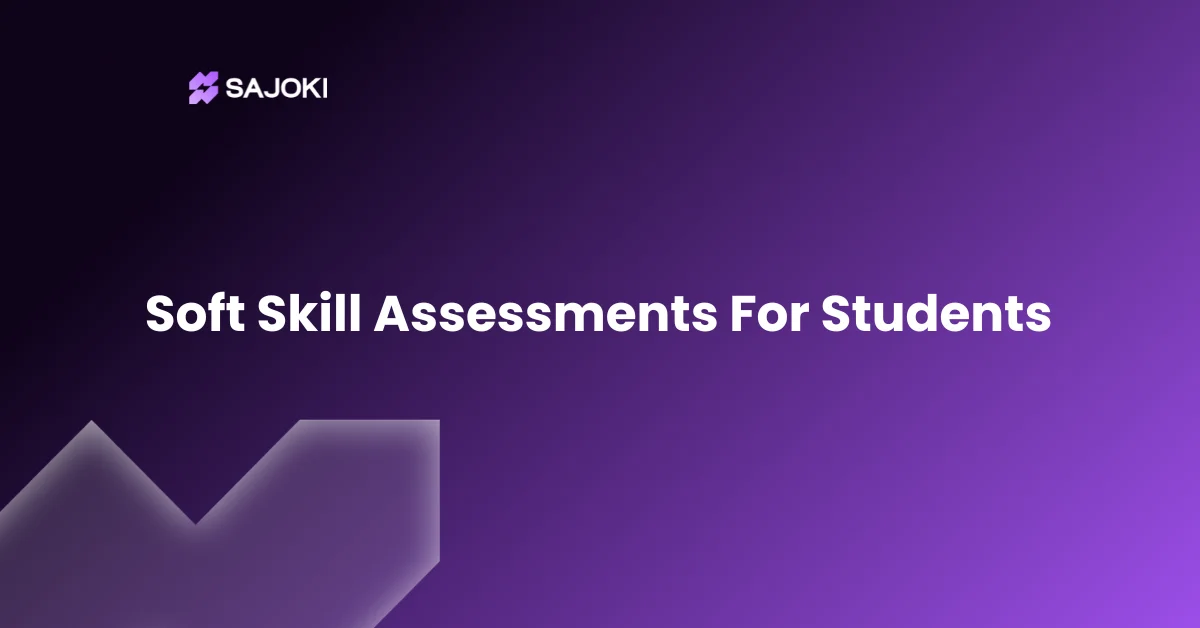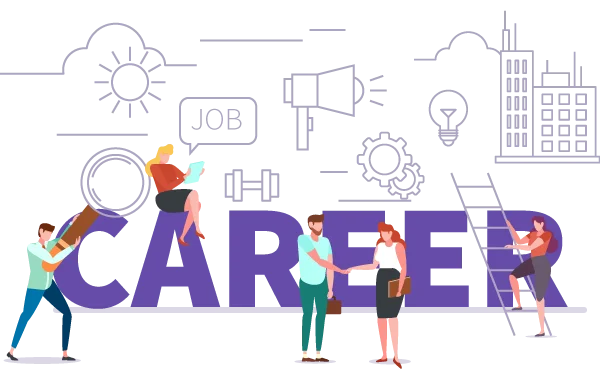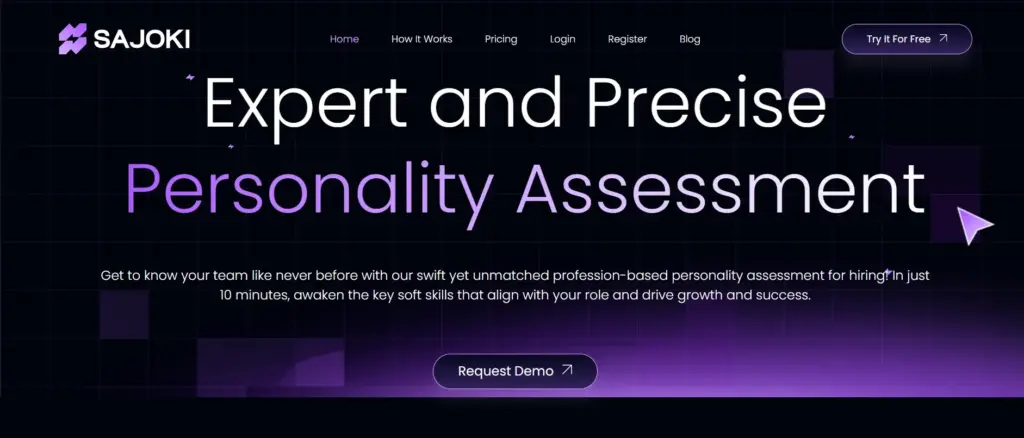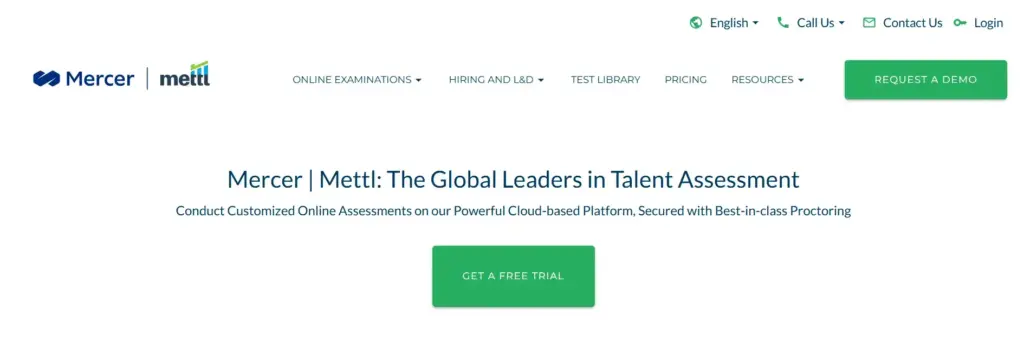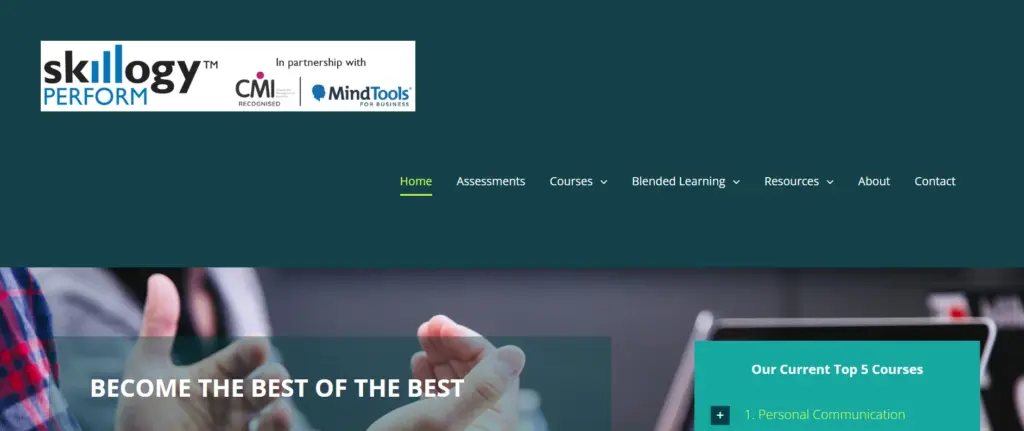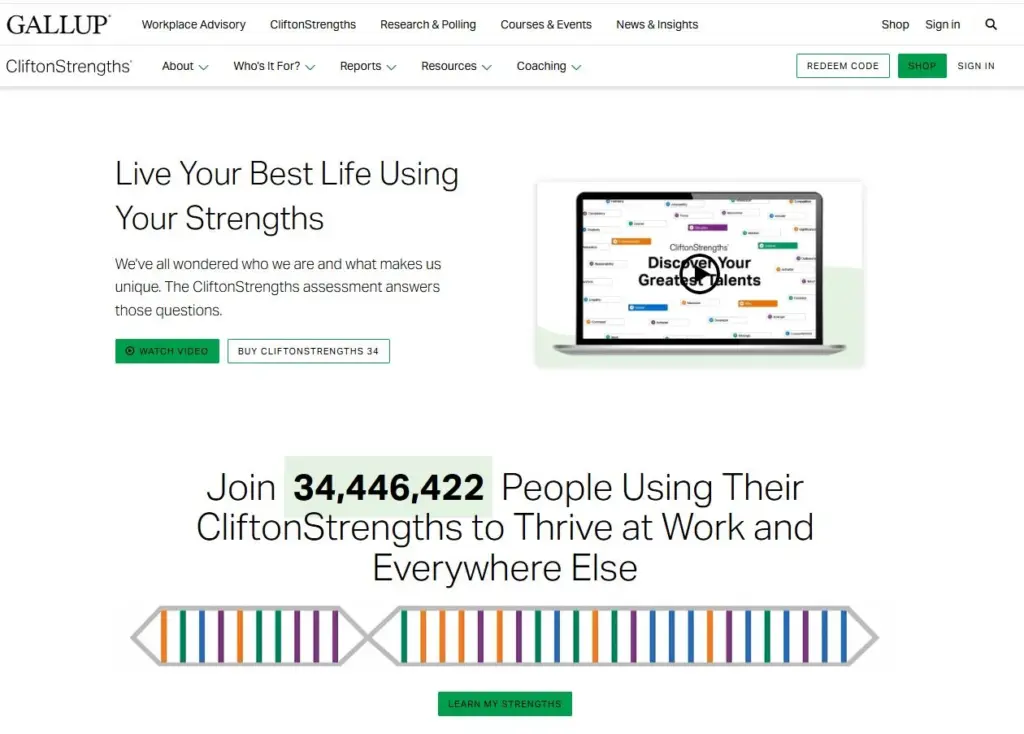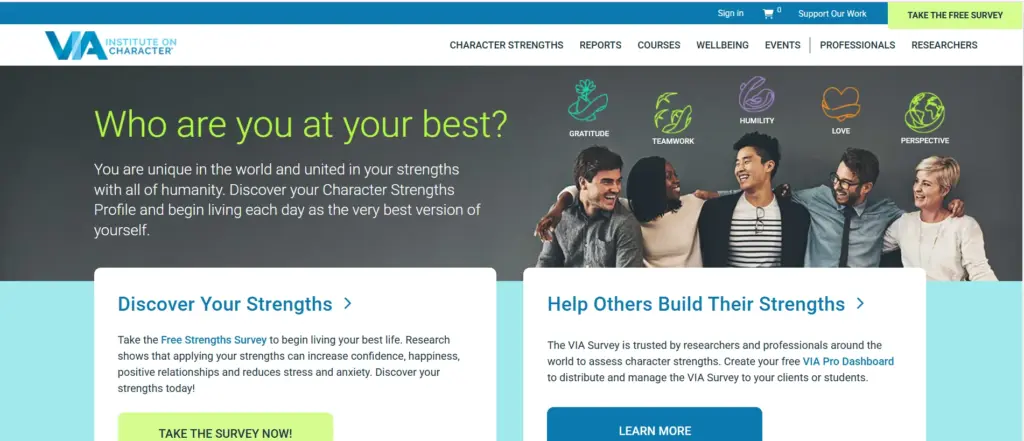We have all heard about the growing use of soft skill assessments in the workforce. However, many fail to realize that their use goes beyond workforce recruitment. They are equally valuable for students.
Soft skill assessments for students act as a great support system. They focus on a student’s interpersonal skills, allowing them to identify what improvements should be made. The purpose of such assessments isn’t just to enhance academic growth but also to help students sustain a life beyond their education.
This guide will reveal more about soft skill assessments and their contribution to a student’s life. We will also talk about how schools can implement them to help students create an immaculate set of soft skills. Let’s go!
What Are Soft Skill Assessments?
By the name, you might realize soft skill assessments are tests that deal with soft skills. They evaluate one’s socio-emotional abilities, which basically means skills that you use to interact and build relationships.
These assessments help to go beyond common technical abilities. It is easy to understand the kind of hard skills a student might possess.
However, understanding the nuances of soft skills in a student can be quite difficult. This is where soft skill assessments come in handy.
The assessments assess skills like communication, teamwork, and time management. They provide valuable insights into a student’s strengths and weaknesses. Such insights can shape one’s academic and personal development.
Existing Content Relevance:
What is the Personality Assessment Test?
How Soft Skill Assessments Can Help Students: 5 Key Benefits
Soft skills in students are very crucial. They not only affect an individual’s grades but also their lives outside the classroom. By utilizing soft skill assessments, students can get a better grip on their lives, making changes that will allow them to excel.
Let’s see what soft skill assessments for students bring to the table.
1. Enhances Self-Awareness
Students, especially when in high school, are on a journey of figuring themselves out. Soft skill assessments can be an invaluable tool in supporting this journey of self-awareness.
They provide insights into one’s behavior, attitude, and various interpersonal strengths.
Also, these assessments allow students to reflect on the traits they can leverage. It allows them to put their strengths to use while working on their weaknesses.
This creates a solid foundation for self-growth. It enables students to consistently develop themselves in the classroom as well.
2. Improves Teamwork Abilities
A key soft skill for students is teamwork abilities.
By taking a soft skill assessment, they can get a better outlook on how they collaborate with others. This is an essential skill for both academic and professional lives.
The soft skill tests can identify how strong a student’s teamwork skills are. They can also showcase areas that need to be worked on.
Thus, helping individuals foster better, stronger connections and collaborative skills.
3. Enhances Confidence And Social Skills
The main purpose of soft skill assessments for students is to build a stronger set of skills. They highlight weaknesses so that people understand what they lack and can eventually improve them.
Also, highlighting the positive skills provides a sense of assurance, allowing students to be optimistic about themselves.
Over time, this can boost confidence in students. It instills positivity inside themselves, allowing them to be sure of themselves.
Thus, preparing them to navigate all kinds of social dynamics.
4. Assists With Career Readiness
Soft skill assessments aren’t just for developing day-to-day skills, they also impact one’s career. Knowing one’s own strengths and weaknesses is the key to a thriving career.
With the insights from a soft skill assessment, students can utilize their skills to build a professional life.
For instance, a student with strong communication and adaptability skills could be encouraged to try fields like business, sales, or even any public service.
5. Encourages Holistic Student Development
A student’s life doesn’t revolve only around grades. As a student, your focus should be on being a well-rounded individual.
For a fulfilling experience, your personal development should be based on your emotional intelligence, resilience, creativity, adaptability, and many other crucial soft skills.
This is where a soft skill assessment could shift the foundation of a student’s life. It will help them develop deep interpersonal qualities, creating a balance between academics and social lives.
5 Best Soft Skill Assessment Tools for Students
You have got an idea on how beneficial soft skill assessments for students can be. Now, here is a breakdown of five of the best soft skill assessment tools that students can use.
SAJOKI
SAJOKI is an AI-powered personality assessment platform based on soft-skills, primarily developed for recruitment. However, it serves to be a great tool for students, too. It will not only help with individual development but also with team-settings in the classroom.
It offers a 10-minute soft skills test that can be customized for specific roles. Moreover, SAJOKI’s AI analysis helps provide comprehensive personality profiles.
Why Choose SAJOKI?
- AI-powered efficiency.
- Role-specific assessments to ensure relevance and applicability.
- Allows for comparison of results after the tests.
- Offers data-driven insights.
- Quick results, which make it perfect for classrooms.
- Suitable for organizations and institutions of varying sizes.
Existing Content Relevance:
Why SAJOKI Stands Out: Comparing Top AI Personality Testing Platforms
Mercer Mettl
Mercer Mettl offers a range of psychometric and behavioral tests to evaluate different soft skills. It also offers coding tests, cognitive assessments, and technical assessments. Thus, making it an all-in-one solution for academic institutes.
Why Choose Mercer Mettl?
- Can be used to evaluate both behavioral and aptitude.
- Provides scientific and validated assessments.
- Offers detailed reports.
- Offers many validated measures, such as AI-proctoring and campus hiring.
- Ideal for institutions with a large number of students.
- Often used by universities and employers.
16 Personalities
16 Personalities is a popular tool that provides insights into soft skills by evaluating personality types. By following the famous MBTI framework, it categorizes personalities into four types. It mainly focuses on an individual’s communication, decision-making approach, and stress response.
Why Choose 16 Personalities?
- Free and widely accessible.
- Encourages self-reflection.
- Can help identify suitable work environments and roles.
- Offers fun visuals and relatable explanations.
Skillogy
Skillogy offers a range of courses and assessments that focus on various soft skills. It utilizes a blended learning approach designed for schools and vocational training.
Why Choose Skillogy?
- Tailored for schools.
- Supports blended learning environments.
- Connects academic skills with workplace skills.
- Can track development over time.
- Has a gamified UX to keep students engaged.
- Offers actionable insights aligned with educational standards.
CliftonStrengths
CliftonStrengths focuses on positive skills. It helps individuals discover their top five natural strengths from a list of 34 talents. The main goal is to highlight skills that can be leveraged, instead of trying to focus on fixing weaknesses. This can help students prioritize what they do best.
Why Choose CliftonStrengths?
- Promotes confidence and positivity.
- Encourages goal setting based on individual strengths.
- Highly scalable and can be used with individuals or entire classrooms.
- Can help with self-guided development.
- Widely used in universities and student leadership programs.
VIA Character Strengths Survey
VIA Character Strengths Survey is a free online platform based on positive psychology. Similar to CliftonStrengths, they focus on positive skills, providing a report surrounding 24 universal strengths.
This platform is heavily rooted in science-backed research, making it a reliable tool for students.
Why Choose VIA Character Strengths Survey?
- Encourages personal reflection.
- Non-judgmental framing.
- Can help enhance classroom culture.
- Perfect for SEL Programs in schools.
- Highly accessible as it’s free of charge.
TestGorilla
TestGorilla is a well-known talent assessment platform. It provides a wide range of pre-built assessments that focus on soft skills like communication, critical thinking, and emotional intelligence. However, you can also customize the tests as needed.
While it is primarily a pre-employment platform, it is highly adaptable for education and career guidance as well.
Why Choose TestGorilla?
- Choose from a wide variety of soft skill and behavioral tests.
- Custom test creation.
- Offers detailed analytics and advising.
- Tests range from 10–30 minutes, making ideal for time-efficient processes.
8 Key Soft Skills For Every Student
Here is a list of soft skills that every student must develop. These skills prove to be extremely helpful in one’s academic life, making them foundational for academic success and career development.
- Communication
- Critical-thinking
- Problem-solving
- Teamwork and collaboration
- Time management
- Adaptability
- Self-discipline
- Decision-making
Existing Content relevance:
7 Must-Have Soft Skills For A Tutor
What Soft Skills Are Needed For a Marine Biology Career?
5 Soft Employability Skills For A Nurse
7 Essential Soft Skills For Orthodontists
How Can Students Improve Their Soft Skills?
Students already have a lot going on, from balancing academic and extracurricular activities to managing social interactions and sometimes even jobs. Among all that chaos, underdeveloped soft skills shouldn’t be another source of stress for them.
Here are a few things students can engage in to work on their soft skills.
1. Build New Experiences
Get out of your comfort zone and try out new things. Engage yourself in activities or situations that you generally don’t try. This will help you adapt rapidly while also improving other soft skills related to the activity you will try out.
2. Reflect On Your Actions
Always try to take a moment to reflect on your actions. Build curiosity about how things went down and how you could’ve handled them better. This is the key to developing soft skills that meet your needs and goals.
3. Attend Workshops
You will find several workshops catering to the development of different soft skills. Participate in one such workshop based on the skill you have to improve. By attending workshops, you can keep yourself accountable and engage consistent in self-improvement.
4. Seek Feedback
Try to seek feedback or constructive criticism from the people around you. It could be a teacher, a friend, or a family member. Sometimes, a fresh perspective from someone else can help identify key areas of improvement.
5. Practice Through Real-Life Scenarios
There is no specific timeline to work on your skills. Try to apply them in real-life scenarios as you go about your day. It doesn’t have to be perfect, all you need to do is continue practicing it in different environments.
How To Implement Soft Skill Assessments In Schools And Universities?
It’s not solely the students’ responsibility to improve their soft skills. Schools should actively take the initiative to implement soft skill development procedures to help students grow to their full potential.
Here is how institutes can implement soft skill assessments.
-
Choose Assessment Methods
Start by selecting the kind of assessment methods you want to implement. There is a range of methods, such as self-assessments, peer-assessments, faculty evaluations, or 360-degree feedback. For a holistic development approach, we recommend combining a few methods.
-
Use Tools And Technology
Make the best out of the tech-driven era we are living in. Opt for appropriate online assessment tools and learning management systems. You can even consider AI-based assessments with gamified elements to help keep the students engaged.
-
Integrate Into The Curriculum
You can’t build better soft skills based on just one soft skill assessment. Try to apply the learning process to projects or extracurricular activities. If possible, you can also host workshops on specific soft skill development.
-
Train Faculty and Staff
A crucial factor is ensuring the faculty and staff are adequately trained. They should be able to understand the students’ soft skill assessment and provide feedback.
FAQ
Q. Why are soft skills important in higher education?
As students step forward into their higher education, soft skills help them become more organized and responsible. The skills not only prepare them for handling academics but also help them transition into their professional lives.
Q. Are soft skill assessments mandatory for students?
No, they aren’t a necessity for students. However, they provide very important insights into their characteristics and skills, helping them make necessary improvements in life.
Q. How effective is soft skills training for students?
Soft skill training is generally very effective for students. When implemented correctly, the training leaves a life-impact on the students, enabling them to thrive later in their lives.
Conclusion
To sum up, the importance of soft skills for students is unparalleled. The insights from these assessments can make one’s academic life significantly easier. Students can utilize these insights to build soft skills, such as time management, adaptability, problem-solving, and leadership skills.
These skills are the key to being a driven student who exceeds expectations. However, the power of soft skills assessments isn’t limited to one’s academic life. They empower students and offer them the right set of skills, carving a smooth pathway to the professional world.
